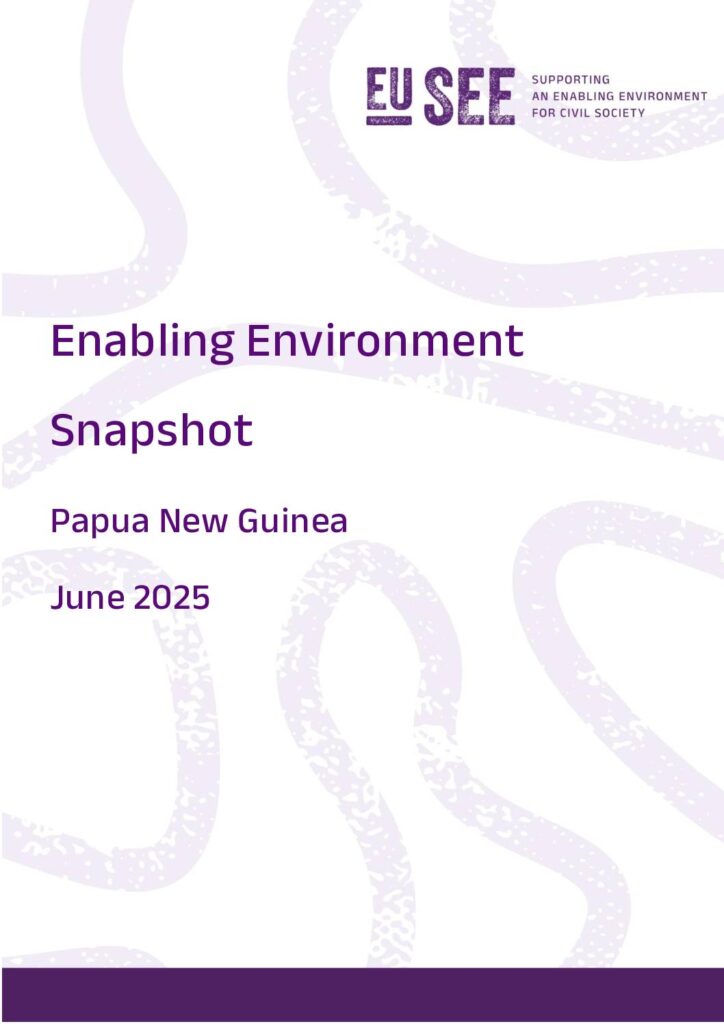The Constitution of Papua New Guinea guarantees the freedom of conscience, the press, information, expression, and assembly and association. However, several legislative developments, such as the National Counter-Terrorism Act 2024 and the Freedom of Information Bill, indicate the executive government’s increased tone towards the restriction of these fundamental civic freedoms.
The regulatory and administrative requirements for civil society organisations (CSOs) have remained relatively free and non-restrictive for the past five decades. Nevertheless, there is an increasing encroachment on constitutional freedoms by the Government of Papua New Guinea (GoPNG), which poses a new threat to the ability of CSOs to have a meaningful impact on national development and key decision-making processes in their respective areas of focus.
While the GoPNG has recently demonstrated an increased openness and willingness to consult and engage with civil society actors in the development and implementation of new government policy and laws, there is a growing concern among CSOs that many of these high-level engagements may be performative. Several key recommendations and community feedback on issues of national concern have had little to no impact on core government initiatives.
Despite these conditions, PNG has seen a growing engagement of CSOs at both the community level through ongoing research, outreaches, and development projects, as well as at the national level through government consultations, participation in industry and development sector peak bodies, and direct public sector partnerships.

